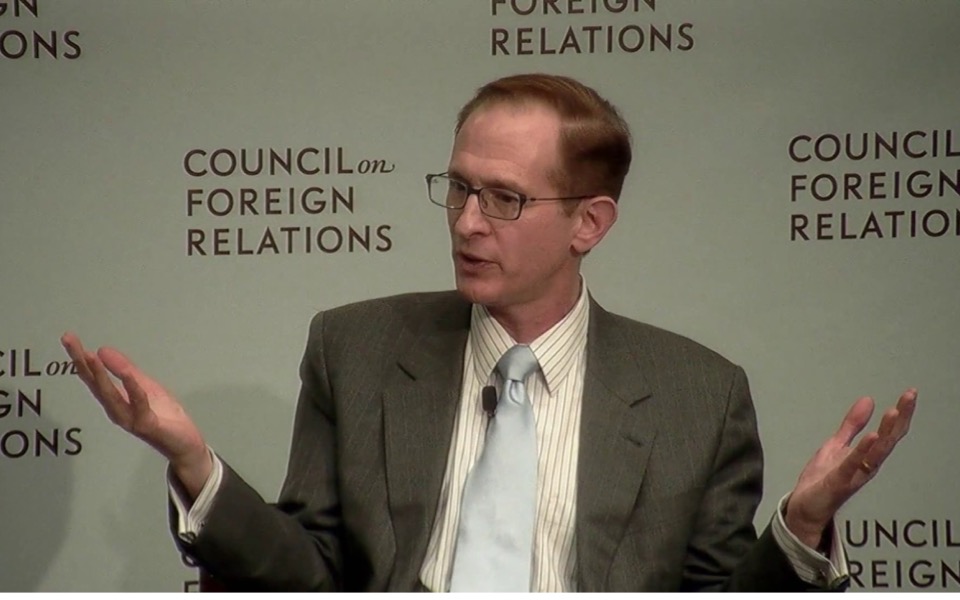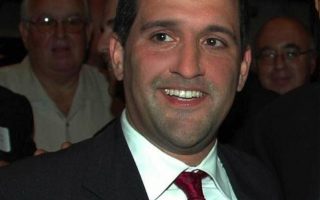How Greece saved Europe in the aftermath of WWII

Greece could have become a communist country in 1947 and stayed that way until at least 1989, even though many believe that on October 9, 1944, at the Moscow Conference, Winston Churchill gave Joseph Stalin a napkin saying that Great Britain wanted 90 percent of Greece and we all – including the Americans – lived happily ever after.
The so-called Percentages agreement, however, was nowhere near as simple as that, given that the situation across Europe remained incredibly fluid for two to three years after the war.
Prime Minister Churchill had lost the elections in 1945. Weakened by the war, Britain was gradually dismantling its empire and America was still on the fence over whether it would replace it as a world superpower.
Western Europe as we know it did not get back on its feet until 1947, which is also when the US Congress approved the Marshall Plan to help rebuild Greece and Turkey. Had the plan failed, Greece and possibly all of Germany (and not just the east), Italy and France would likely have fallen under Soviet influence.
This, at least, is what American economist Benn Steil – head of the economics department of the Council of Foreign Relations think tank and author of “The Marshall Plan: Dawn of the Cold War” (Simon & Schuster, 2018) – argues in an interview with Kathimerini.
Few Greeks understand how hard it was for such a plan to get approval at a time when Washington was reluctant to get more deeply embroiled in Europe’s problems.
Thanks to the fact that the amount of funds needed to support a country of its size was small enough not to provoke a public reaction in the United States, Greece was the first country where the Marshall Plan was implemented.
The Plan’s success in Greece bolstered the pro camp and allowed it to convince Congress to expand it to the rest of Europe.
Thus, the Marshall Plan helped shape the post-war Western world around the two pillars of security and prosperity, embodied by NATO, later the European Community, and later still the European Union.
We could even argue that not just Western civilization but post-war Western Europe as we know it today were born in Athens.
According to Steil’s book, in late 1946, early 1947, two of the State Department’s so-called Wise Men, diplomats Charles Bohlen and Dean Acheson, believed that the Soviets had been planning to install a communist regime in Athens, were busy encircling Germany, Turkey and Iran, and that Greece in particular, after the British pullback, was at imminent risk of collapse.
Meanwhile, Soviet Foreign Minister Vyacheslav Molotov was pushing Stalin to provide Greek communist rebels with more support. If the US had not replaced the UK as a guarantor power in Athens, that 90 percent would have been nothing more than a discarded napkin and the Soviets would have jumped into the power vacuum.
“Stalin had been chastened by [Harry S.] Truman’s robust reaction to his pressure on Turkey and Iran in 1946, but if the administration’s reaction to the British pullout had been meek he may have been emboldened again,” explains Steil.
“As it was, the harsh tone of the Truman Doctrine speech merely restated for Stalin American policy in that region. Thus he was content to focus on Central Europe, and Germany in particular, while scolding [Josip Broz] Tito for continuing to support what he saw as the hopeless communist cause in Greece.”
Chain reaction
The success of the Marshall Plan in Greece and Turkey set off a chain reaction. Stalin was worried that he could also lose Eastern Europe, which was starting to turn toward the US for a slice of the pie.
With an economy in tatters, the Soviet leader was in no position to match the American contribution. Of course he didn’t need to.
Democracy costs money because it relies on the people having freedom and prosperity – challenges communism was not burdened with.
Stalin simply orchestrated the coup in Czechoslovakia and ordered tougher rule over all the countries where Moscow had installed friendly governments.
The Soviet coup gave Truman the excuse he needed to convince Congress to expand the Marshall Plan to all of Western Europe and particularly Germany in order to avert a collapse that would make those countries easy pickings for Moscow.
In other words, most of Europe was a “gray area” and the Marshall Plan was instrumental in democracy’s prevalence over a large part of it.
“Imagine if Henry Wallace had won the vice-presidential nomination in 1944, which he nearly did. He would have become president on Roosevelt’s death in April 1945, instead of Truman, and he would have pursued a policy of cooperation at (almost) all costs with Moscow,” says Steil.
“In that case, Stalin would very possibly have been able to achieve his aim of taking over all of Germany, and at least destabilizing France and Italy through their communist parties. The Cold War might have been lost before it started.
Counterfactual history is always difficult, but it is at least fair to say that there would be no European Union or NATO without the Marshall Plan.”
Until the Marshall Plan, the French and the Soviets wanted to impose crippling reparations on Germany that would help them rebuild their own economies.
Truman’s intervention put a stop to those plans and promoted the idea that Germany also had to be allowed to get back on its feet.
In exchange for supporting Germany’s recovery, the British and French asked for a security alliance that would protect Western Europe from the Soviet Union and an economic alliance that would keep Germany in check by harmonizing the economic policies of member-states.
It all could have gone very differently, says Steil. “Imagine if FDR had survived. He was an intelligent and pragmatic man, but that monstrous fool Henry Morgenthau [then Treasury secretary] would probably still have been a force in the administration. Though by 1947 it was clear to anyone paying attention that the Morgenthau Plan to deindustrialize Germany was a moral and strategic abomination, it was important that a different cast of characters was on stage. I argue in my book that Truman’s State Department did a brilliant job making the French, in particular, understand that keeping Germany in rags was no longer an option.”
And so, without doing much itself, Greece became instrumental in Europe’s salvation.





